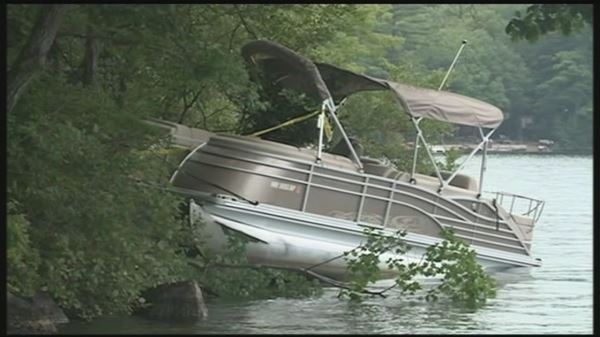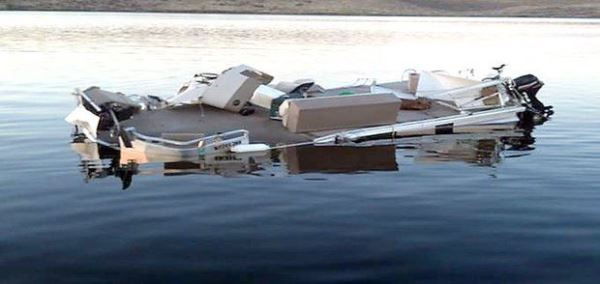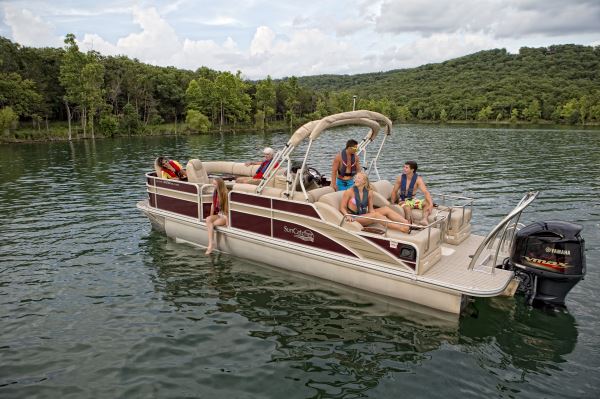
With Christmas behind us and boat show season straight ahead, there is something to consider once the shopping, drooling and deal making slows down and you pick out your new boat for the new season.
But let’s not forget that buying a boat is a time when many of us forget the basics and make decisions based on emotion. If you are a boat show buyer in the colder regions of the country where visions of wake jumping are still in your head, you are at a greater risk for emotional buying. Snow and ice create an urge to be boating that sometimes influences your purchase plans. Don’t let the dismal weather outside put you at a disadvantage inside the boat show.
One major expense that most people leave until last is insurance. Talking about insurance can be boring, but it is a necessity. Sure, you can call the agent that insures your car if you want limited coverage for your boat. But (shameless plug here) you should really start your insurance search with a marine insurance specialist, especially when you start operating bigger and more expensive boats. A dedicated marine policy will have special coverage for boats, such as stated or agreed values, coastal territories, and extra coverage that an auto or homeowner’s policy just can’t provide.
So before you make a decision about your fun on the water, let’s review a few insurance topics that can affect your new purchase. The following topics are for boat insurance in general. So if it doesn’t seem to fit your situation, it might not.

Try to avoid this being your boat.
Marine underwriters look at a number of factors when they figure insurance premiums. These factors include the size of the boat, the location of the boat during storage and use, extra equipment, and the experience of the boat owner/operator. If you are new to boating, you will probably want to stay below 26 feet for your first purchase. The 26-foot market is significant not only for coast guard safety requirements but also from an underwriter position on experience and the covered territories. Most marine insurance companies will cover a 26-foot boat up to 50 miles from the coast and will provide insurance for new owners without any special requirements.
If you are based on the coast, the bigger the boat the further from shore you can travel. The bigger the boat, the more stringent the experience and training requirements become. For example, you may not be able to get insurance as a new owner on a 40-foot boat if you have never owned a boat in the 30-foot range. There may be requirements to obtain additional training or to hire a professional captain to operate the boat with you for the first year. Then there are the survey requirements. Many smaller boats will not require a survey before the underwriter will start coverage, but if it’s over 26 feet, it will almost always, unless it is brand new, require a survey (and usually out of water) prior to coverage being started.
Look for a marine insurance policy that has an insured value of the vessel based on an “Agreed Value” compared to a policy that uses “Actual Cash Value.” With Agreed Value coverage, the boat owner will be paid the insured value of the boat (minus a deductible) in the event of a total loss. The insurance company will not depreciate the value of the boat at the time of the loss.
Whereas in the event of a total loss with “Actual Cash Value” coverage, the boat owner will receive the insured value of the boat or the actual cash value (depreciated value), whichever is less. For example, if you have your boat insured for $75,000 and have a total loss, the depreciated value of your boat may only be $65,000 and the insurance company will pay the lesser amount.
Sometimes the term “Stated Value” is used. Don’t confuse this with Agreed Value. Usually “Stated Value” means that the boat has a value stated on the policy and the insurance company agrees to pay that value as a maximum amount but can reduce that value with depreciation or market conditions, etc.

Same here.
A few other items to look for are:
Separate Watercraft Liability coverage. Don’t rely on liability coverage that is an extension of the liability coverage on your homeowner’s or auto policy. You want liability coverage for bodily injury and property damage that you (the insured) are found liable for when operating your boat.
Medical Payment coverage for the insured and any friends or family who get injured while they are on board the boat, boarding the boat, or departing from the boat.
And there are a couple of optional coverages that are nice to have included:
Uninsured Boater coverage will pay for damages sustained from the actions of an uninsured boater. There are a few variations of what is covered, typically it covers bodily injury, but sometimes it can also cover property damage.
Towing Coverage applies to any service charge the insured may incur by receiving marine assistance. This may include coverage for a service charge for towing due to engine failure, mechanical breakdown, grounding and delivery of fuel.
Personal Property Coverage is for clothing, personal effects, fishing gear and sports equipment owned by you, your family or guests on board your boat. Money, jewelry, traveler's checks and other valuable papers or documents are not included for this coverage.
For the best insurance rates, here are a few other things to remember:
- Get out there and boat. Experience moves you up the boat ladder and helps your insurance rates and requirements.
- Plan on getting a survey (if appropriate for your boat) whether the insurance requires it or not; it is just a good practice. Plus, it helps determine a value for the boat.
- Participate in training programs put on by the Coast Guard or others.
- Regular maintenance can help reduce the cost of ownership and risk of problems. Inspect or have your boat inspected by a qualified marine mechanic at least a couple of times a year.
- Fix things that are broken or in need of repair before someone gets hurt or you get stuck on the water and you have to make a claim. Claims will affect your rates and ability to get insurance.
- Have a plan to protect or move your boat if bad weather is heading your direction. If bad weather is winter, lay up the boat. Most underwriters offer reduced rates for boats that are not used year round.
- Securely store your boat by installing theft prevention devices on electronics, outboard engines, outdrives, trailer hitches, etc.
- Install alarm and safety systems to protect against high bilge water levels, fires, vapors and theft.
- Keep your supply of charts and data cards current and plan your routes to avoid accidental grounding and bad weather.
- Be a responsible boater and use appropriate Personal Flotation Devices; don’t drink and boat and follow the "rules" of the waterway.

This is just a brief highlight of marine specific insurance; there is a lot more information that needs to be discussed in a marine policy. Each company has different definitions and limits on their coverage. Contact a qualified marine agent to explain the coverages in more detail. And remember, even if you take all the precautions, accidents still happen. Make sure you can get or have the right coverage for your boat before you buy.

